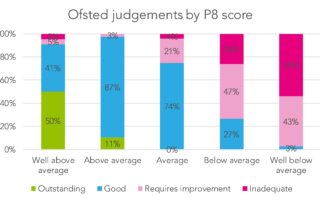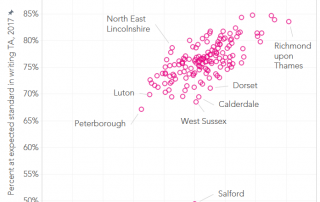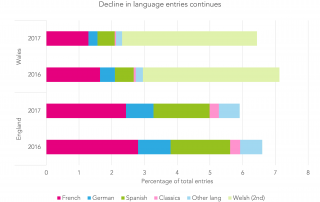Provisional KS4 data 2017: A round-up
The EBacc continues to be ignored There was a slight fall in the percentage of pupils entered for all five subjects making up the English Baccalaureate (EBacc). Even so, the percentage entered for the science and humanities components actually increased. The fall in the headline EBacc entry rate was entirely due to a drop in [...]











